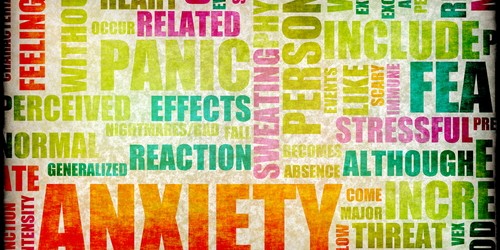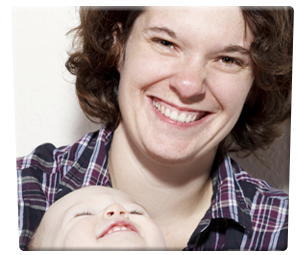Neurofeedback: Natural Treatment For Anxiety
Can Neurofeedback help with Anxiety ?
The first study on using Neurofeedback to reduce anxiety was published in 1978: Hardt, J. V., and Kamiya, J. (1978). Anxiety change through electroencephalographic alpha feedback seen only in high anxiety subjects. Science, 201, 79-81. The results suggest that Neurofeedback training may be useful in anxiety therapy.
This paper considered multiple studies on Neurofeedback treatment for anxiety and depression, finding “particularly positive research support for the treatment of anxiety disorders”: Hammond, D. Corydon. “Neurofeedback treatment of depression and anxiety.” Journal of Adult Development 12.2-3 (2005): 131-137.
What is Anxiety?
 Some people experience anxiety when they have to give a presentation or when during a driving test. Others can become anxious because of being at heights, or the presence of spiders. These forms of anxiety are mostly considered as mild, it becomes more severe when the anxiety and worrying is less controllable, disproportionate, more consistent, and most importantly, when it impacts one’s daily functioning negatively. In these cases the severe anxiety may be a symptom of a more serious mental condition, such as a Generalised Anxiety Disorder (GAD), Social Anxiety, Phobias, Obsessive Compulsive Disorder and a Post-Traumatic Stress Disorder. Research hasn’t discovered the exact cause of (severe) Anxiety yet, in some situations it occurs after a stressful life event, others experience anxiety without immediate cause. Some contribute anxiety to a complex combination of causes such as genetics, a certain environment and life events. The main assumption is however, that (severe) anxiety is caused a deregulation of certain chemicals (‘neurotransmitter’) that occur naturally in the brain. Because of this deregulation, one’s mood can change and related symptoms develop.
Some people experience anxiety when they have to give a presentation or when during a driving test. Others can become anxious because of being at heights, or the presence of spiders. These forms of anxiety are mostly considered as mild, it becomes more severe when the anxiety and worrying is less controllable, disproportionate, more consistent, and most importantly, when it impacts one’s daily functioning negatively. In these cases the severe anxiety may be a symptom of a more serious mental condition, such as a Generalised Anxiety Disorder (GAD), Social Anxiety, Phobias, Obsessive Compulsive Disorder and a Post-Traumatic Stress Disorder. Research hasn’t discovered the exact cause of (severe) Anxiety yet, in some situations it occurs after a stressful life event, others experience anxiety without immediate cause. Some contribute anxiety to a complex combination of causes such as genetics, a certain environment and life events. The main assumption is however, that (severe) anxiety is caused a deregulation of certain chemicals (‘neurotransmitter’) that occur naturally in the brain. Because of this deregulation, one’s mood can change and related symptoms develop.
Symptoms of Anxiety
Symptoms of anxiety can range in number, how intense they are and how often they occur, all depending on the person. The main symptom is that the anxious feelings are irrational and disproportionate to the circumstances. Other associated symptoms can develop physically and mentally, causing withdrawn and avoiding behaviour and a lower self-esteem.
| Associated physical symptoms | Associated mental symptoms |
|---|---|
| Dizziness | Restlessness |
| Drowsiness and tiredness | A sense of dread |
| Pins and needles | feeling constantly “on edge” |
| Irregular heartbeat (palpitations) | Difficulty concentrating |
| Muscle aches and tension | Irritability |
| Excessive sweating | Impatience |
| Shortness of breath | Easily distracted |
| Nausea | |
| Head – and/or stomach ache | |
| Dry mouth, excessive thirst | |
| Frequent urinating, diarrhoea | |
| Painful or missed periods | |
| Difficulty falling or staying asleep (insomnia) |
Treatment for Anxiety
There are many ways to treat anxiety, some benefit from one treatment, others from a combination of treatments. The two main treatment options for (severe) anxiety are psychological therapy, in particular Cognitive Behavioural Therapy (CBT), or medication. With CBT unhelpful and unrealistic beliefs and behavioural patterns are identified and changed, which can reduce anxiety. Medication (e.g. selective serotonin reuptake inhibitors, benzodiazepines) is prescribed for physical as well as mental symptoms, despite unpleasant side effects. Other treatment options are self-help, Applied Relaxation, Parental Anxiety Management, Hypnotherapy and Herbal treatments, caffeine elimination, Electroconvulsive Therapy (ECT), Transcranial Magnetic Stimulation (TMS), and Psychosurgery. Psychosurgery is rarely used and solely in very extreme cases, when other treatment option do not work.
Neurofeedback and Anxiety

Neurofeedback training is a natural, non-invasive and effective choice in reducing Anxiety.
Whilst medication can provide short-term relief by adjusting the chemicals in the brain, neuroplasticity enables Neurofeedback to ‘rewire’ the brains electrical circuits permanently.
With Neurofeedback the brain own self-regulating ability is used to resolve brain-deregulation, resulting in less worries and fear, decreased muscle tension, less head – and/or stomach ache, and improved sleeping pattern and better concentration.
For more questions or to learn if Neurofeedback training can help with Anxiety, please get in touch. There is no fee and no obligation for your initial consultation. Please call BrainTrainWA today on 0207 978 0186


